Chinese general slams 'irresponsible comments' over South China Sea
A Chinese general has lashed out at comments, apparently from the United States, regarding Beijing's military build-up in the South China Sea region.
Lieutenant General He Lei, who was speaking at Shangri-La Dialogue in Singapore, made the remarks after the US defense chief accused China of intimidation and coercion in the disputed waters.
“Any irresponsible comments from other countries cannot be accepted,” said Lei, apparently making a reference to US Defense Secretary Jim Mattis, who had said earlier in the same summit that China was increasing its military build-up through deployment of various weapon systems in the contested sea to intimidate the neighbors.
Mattis said China’s weapons deployment on islets and other maritime features it has built into hardened military facilities across the South China Sea included a range of military hardware, from anti-ship missiles to surface-to-air missiles and electronic jammers.

He said such a deployment heavily contrasted China’s earlier claims that it had no intention to militarize the island features in the South China Sea.
“Despite China's claims to the contrary, the placement of these weapon systems is tied directly to military use for the purposes of intimidation and coercion,” Mattis said during the Singapore event.
Countries like Vietnam, Taiwan, Brunei, Malaysia and the Philippines have challenged China’s sovereignty claims over the entire South China Sea, which serves as a gateway to global sea routes, through which about $3.4 trillion of trade passes each year.
Washington openly opposes China’s claim over the sea and it also constantly accuses Beijing of undertaking a land reclamation program through building artificial islands in the sea and deploying weapons there. Washington also says Beijing could use the islands as military bases.
The fresh escalation of rhetoric between China and the United States comes nearly two weeks before US President Donald Trump is to hold a historic meeting with North Korean leader Kim Jong-un in Singapore.
Mattis said the US military would continue to support diplomats in their efforts for the denuclearization of the Korean Peninsula, which he said should be “complete, verifiable and irreversible”.
VIDEO | ICC's arrest warrant for Netanyahu to worry Western politicians: Former British diplomat
Iranians protest against Israel after Netanyahu ICC warrant
Germany undecided on complying with ICC arrest warrants for Israeli war criminals
VIDEO | Former FBI agent criticizes US Congress for 'outright corruption'
IRGC chief urges Muslim countries to cut aid routes to Israel
'New chapter in cooperation': Iran, Venezuela sign new MoUs
Jordan sentences former lawmaker for supporting Palestinian resistance
Basij volunteer forces hold massive drills in southwestern Iran


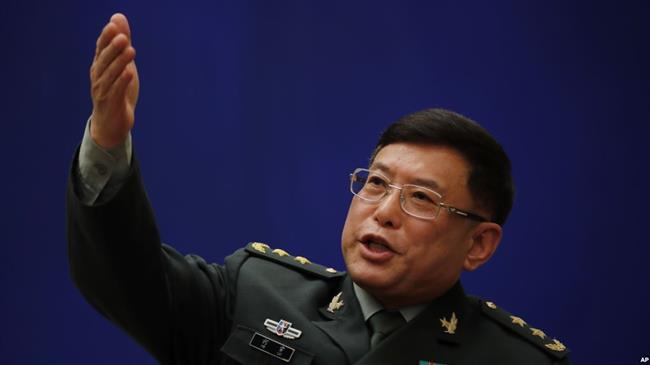
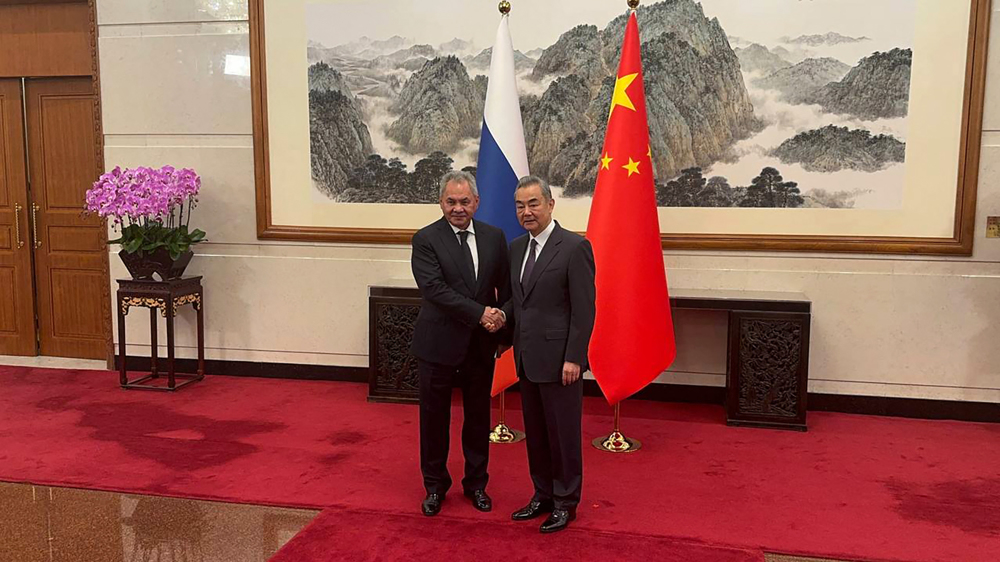
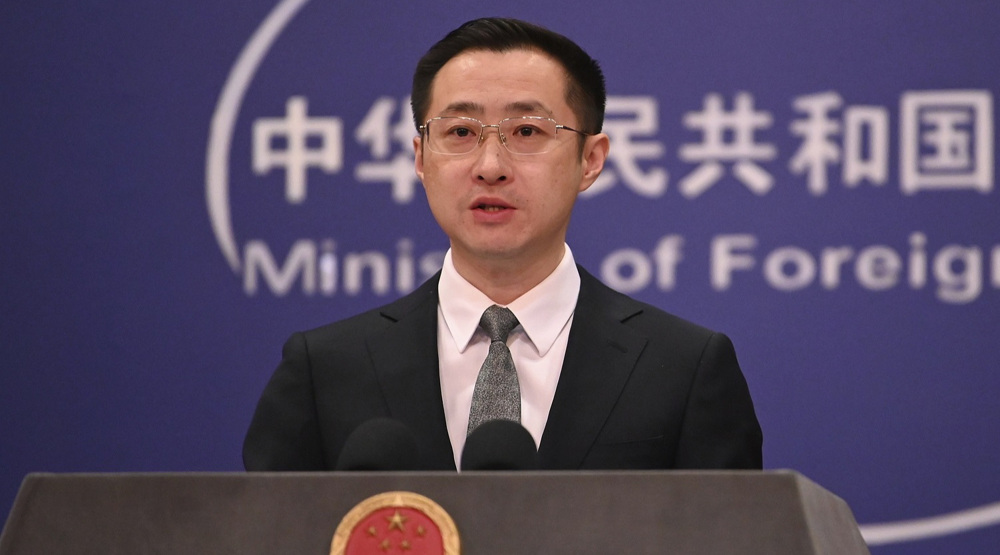
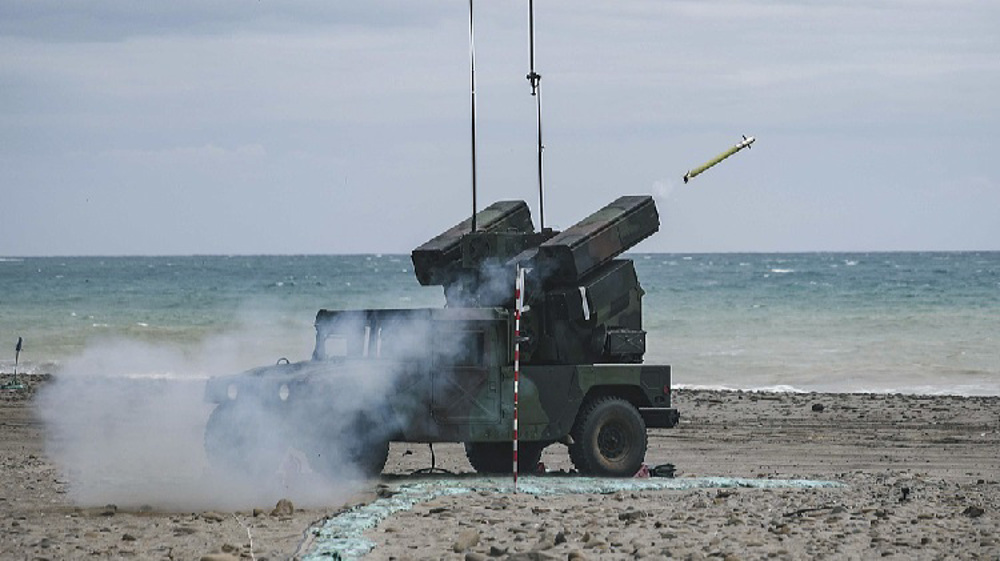



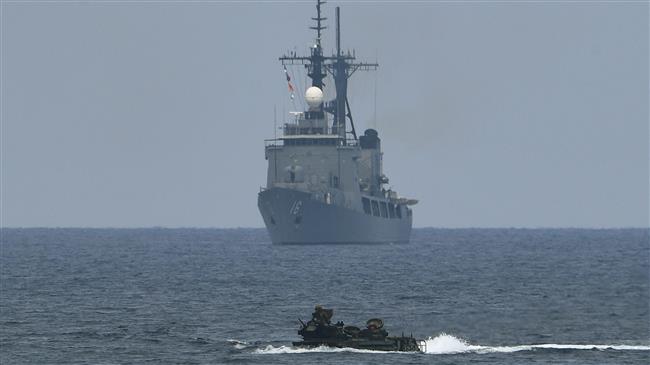
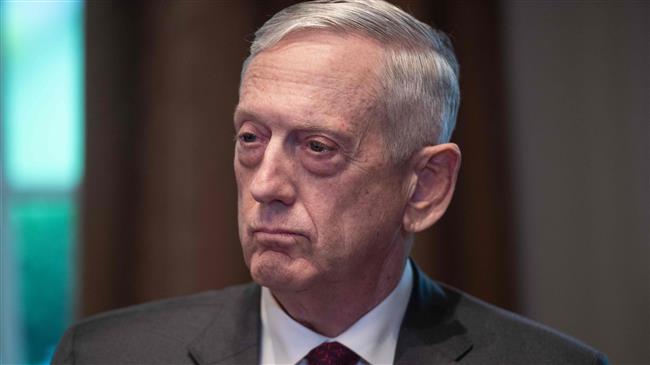
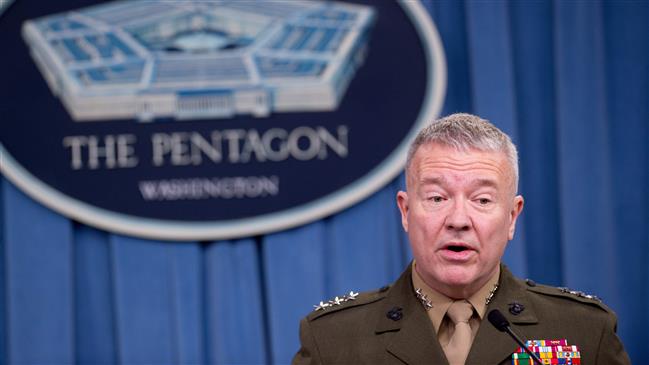

 This makes it easy to access the Press TV website
This makes it easy to access the Press TV website